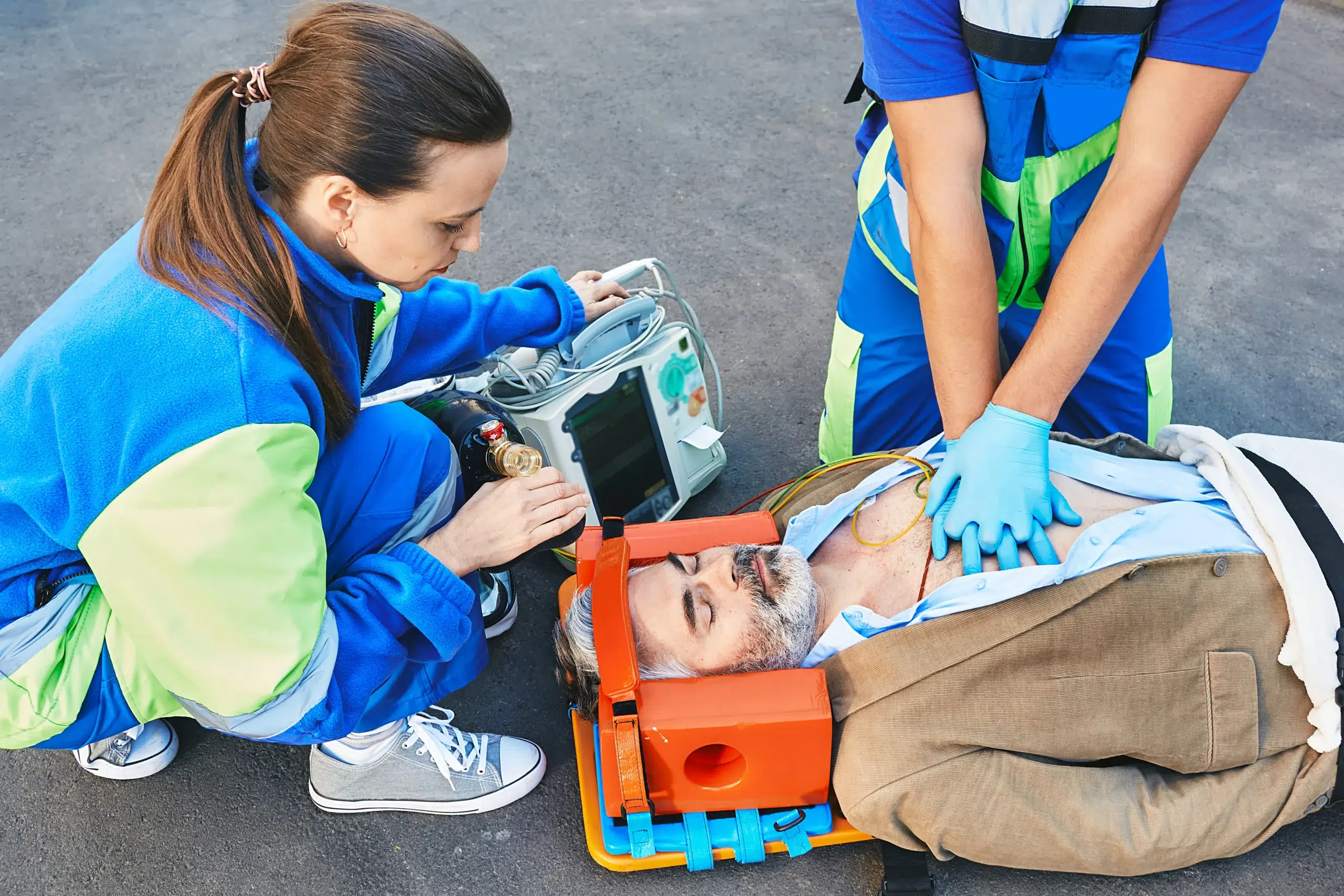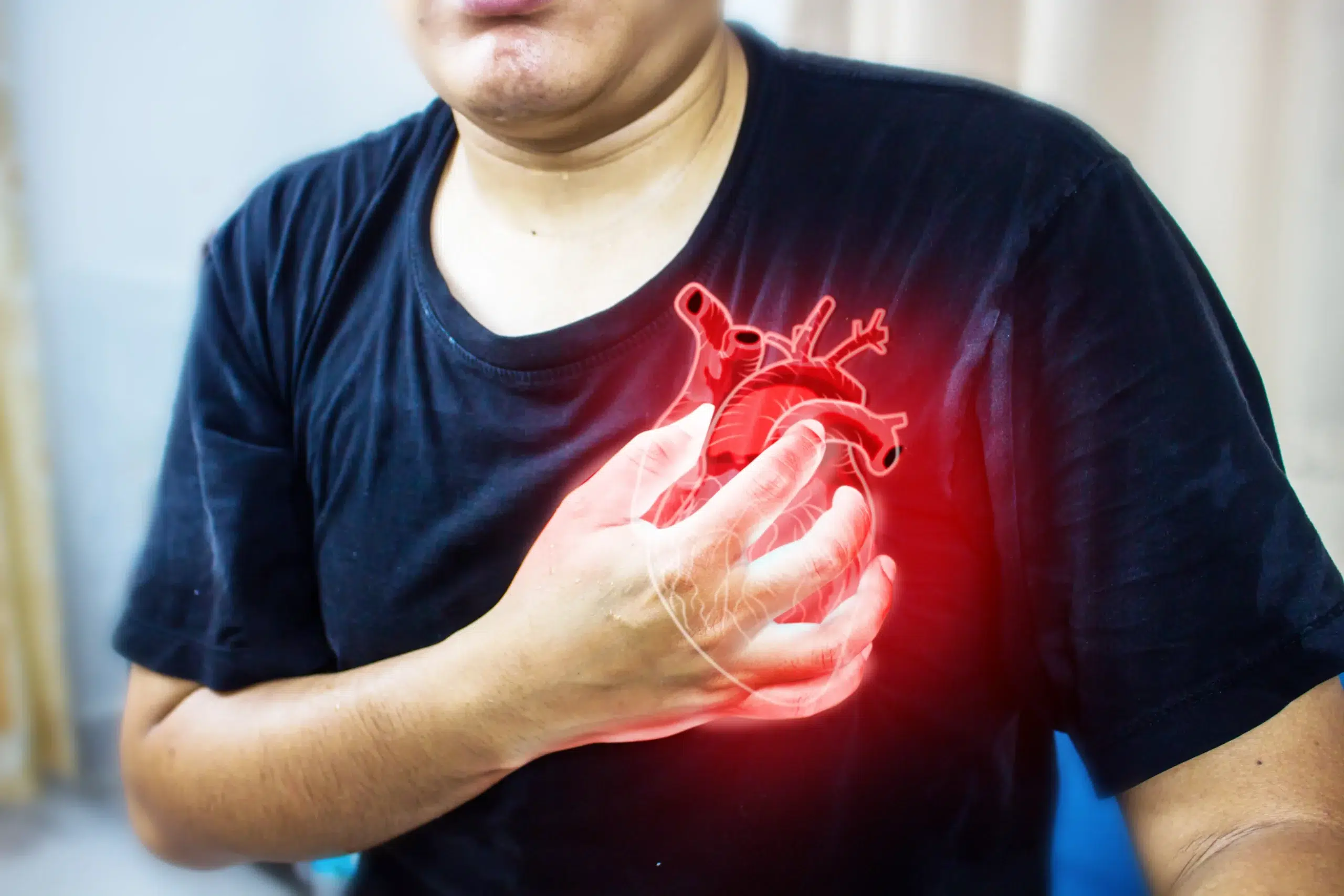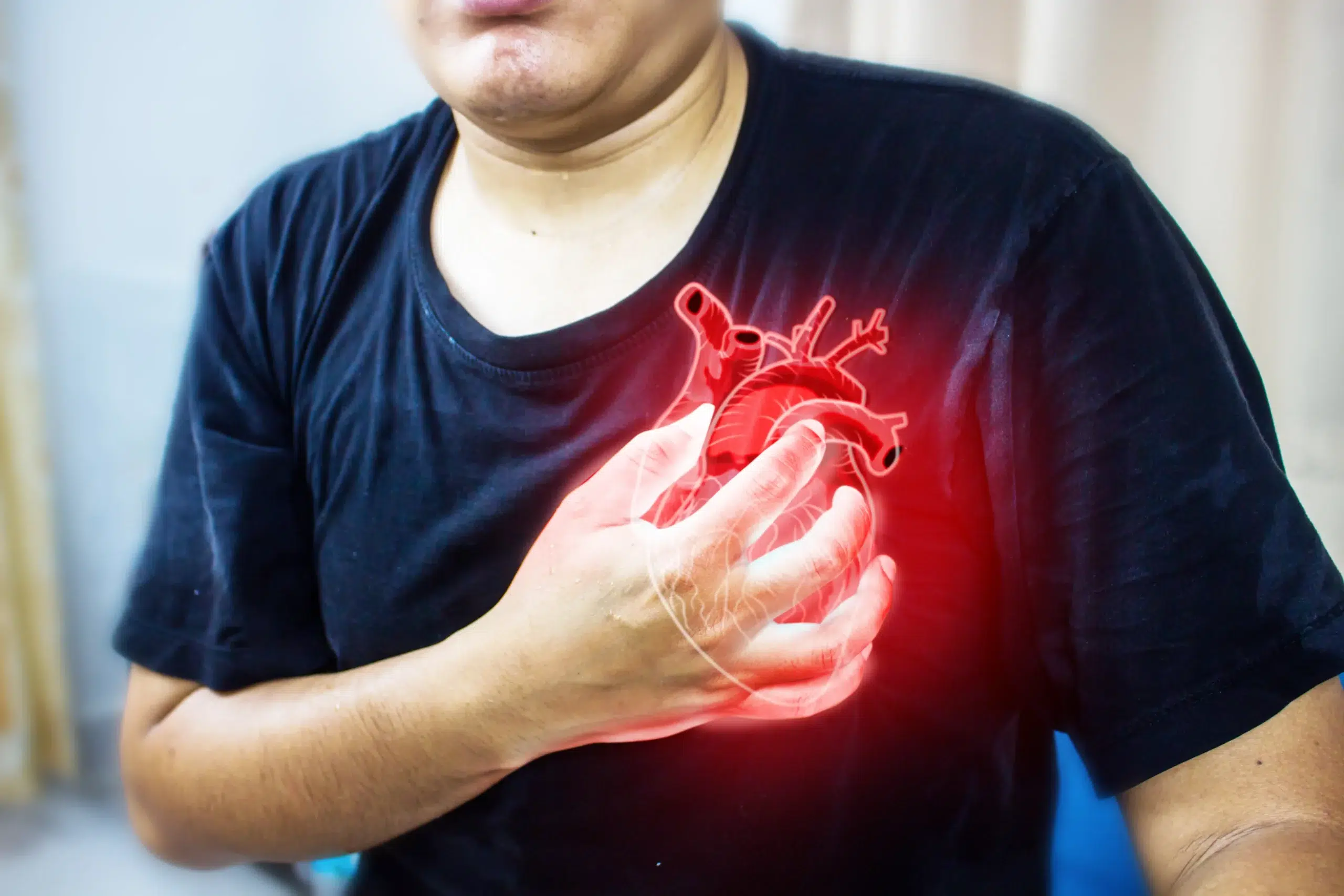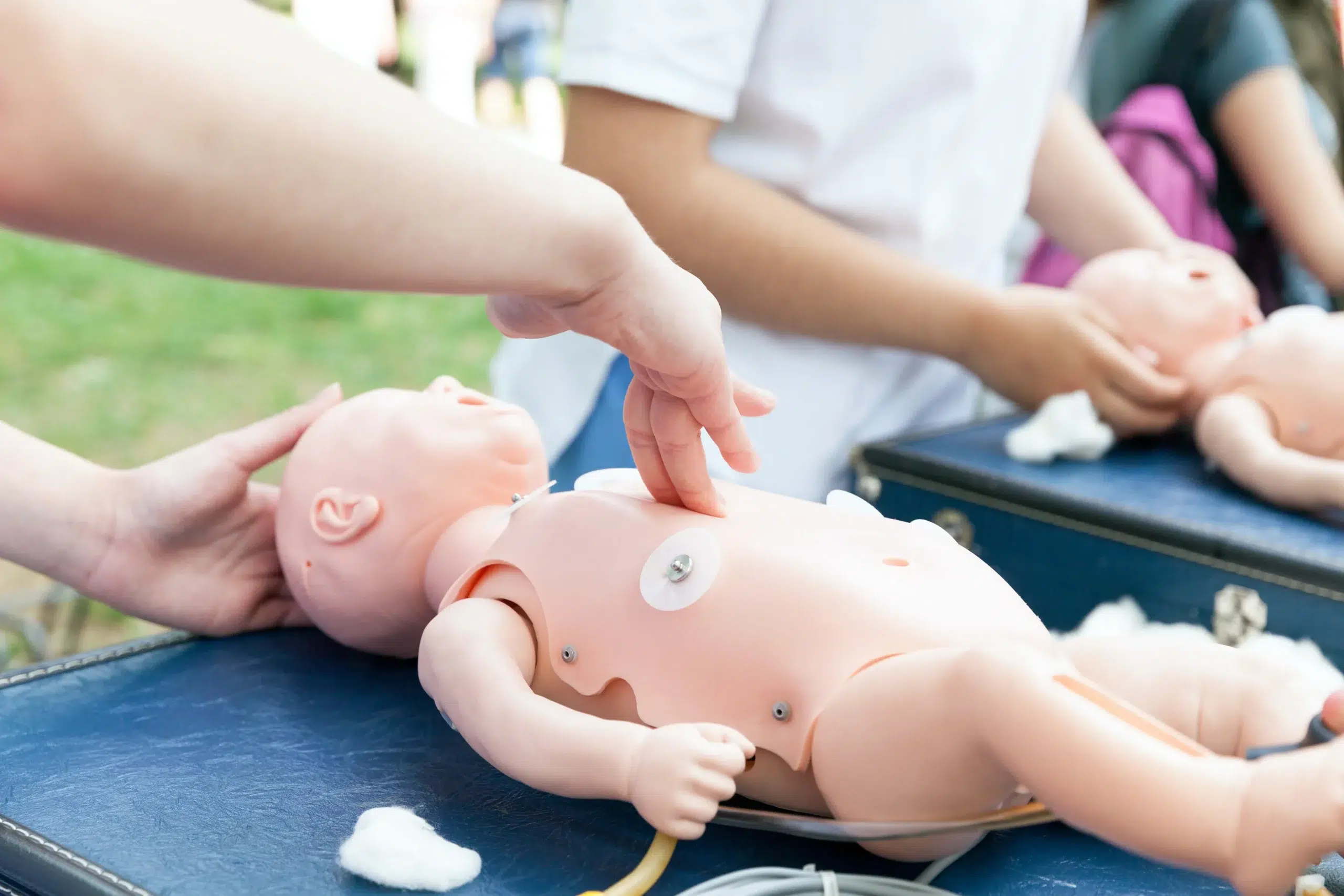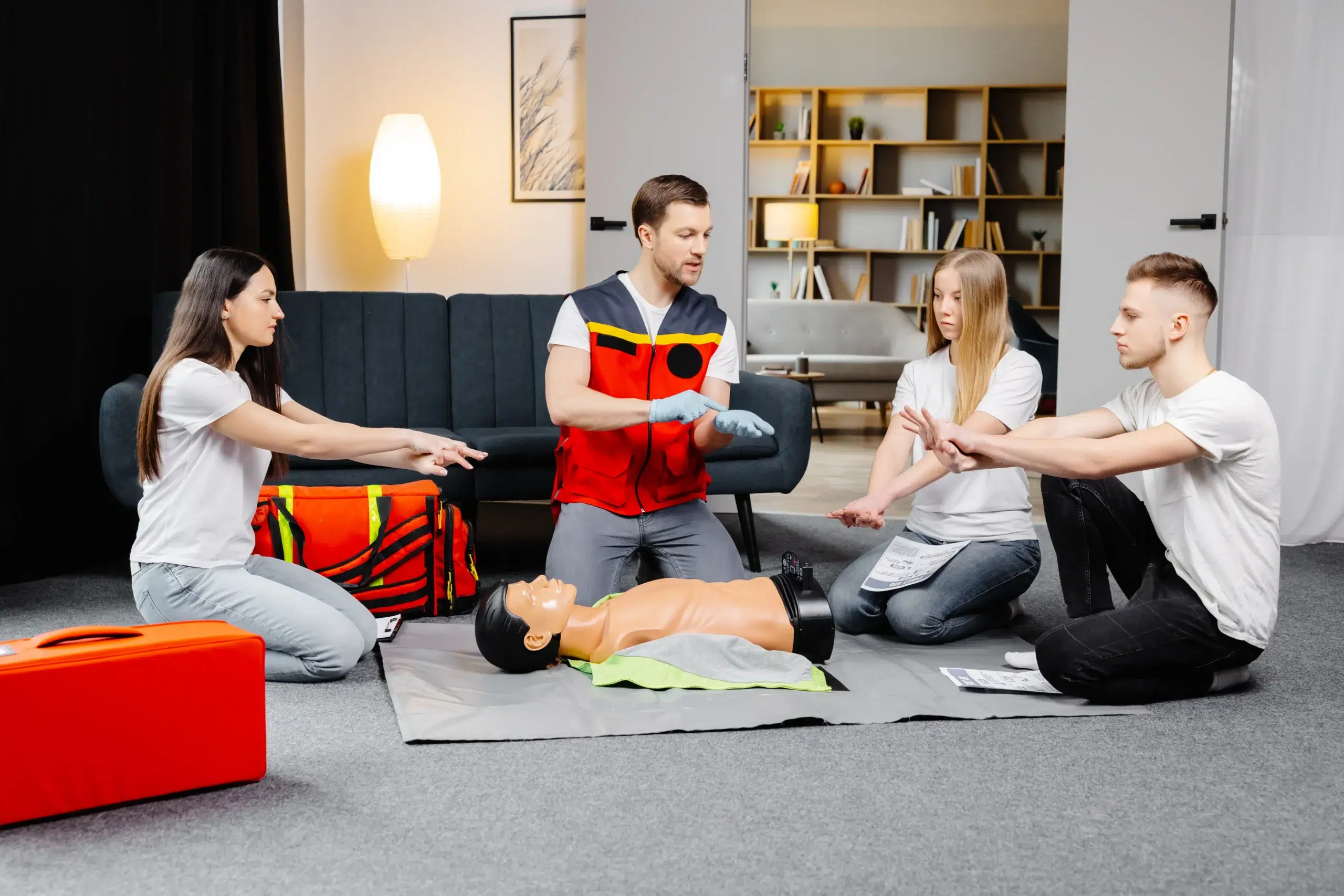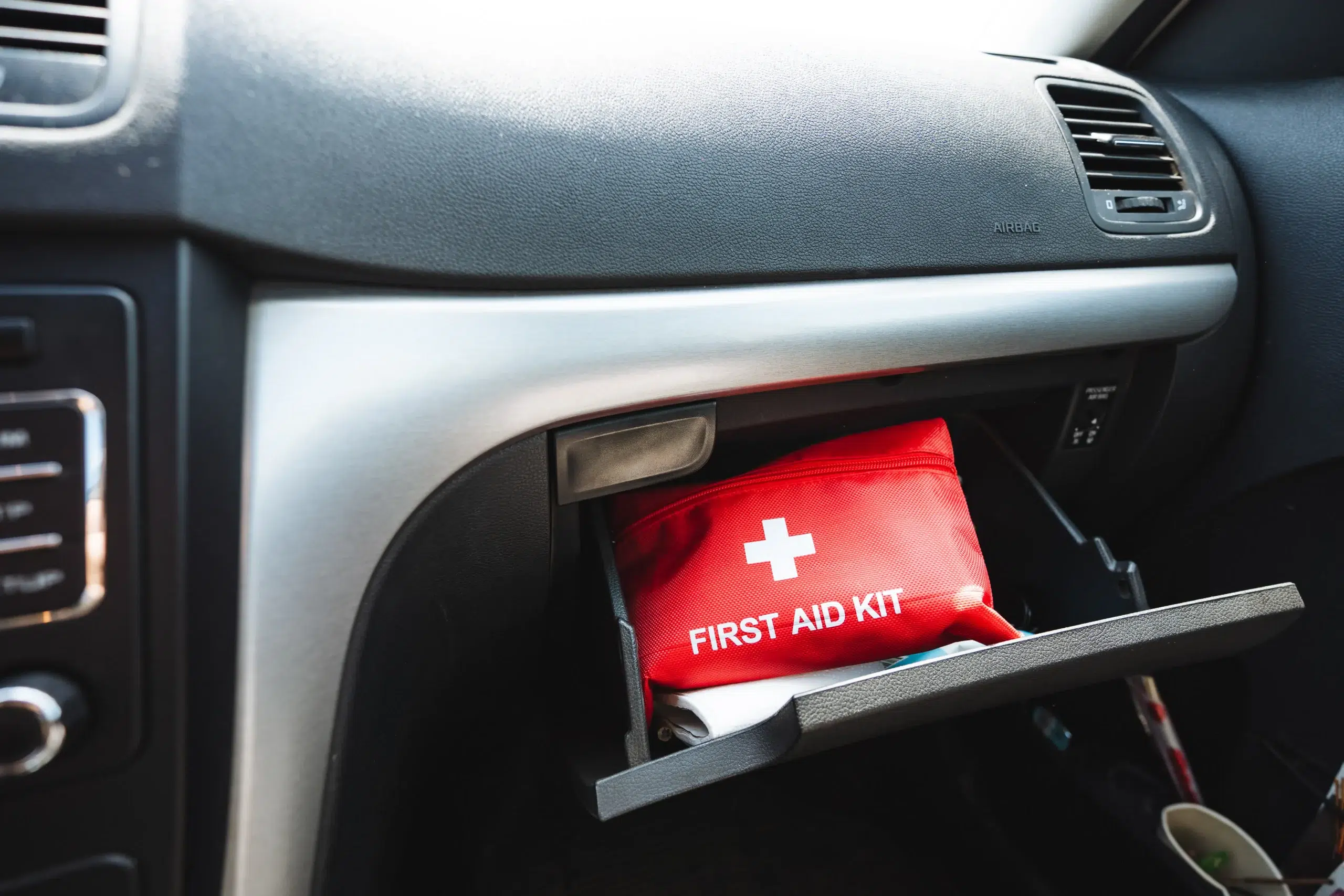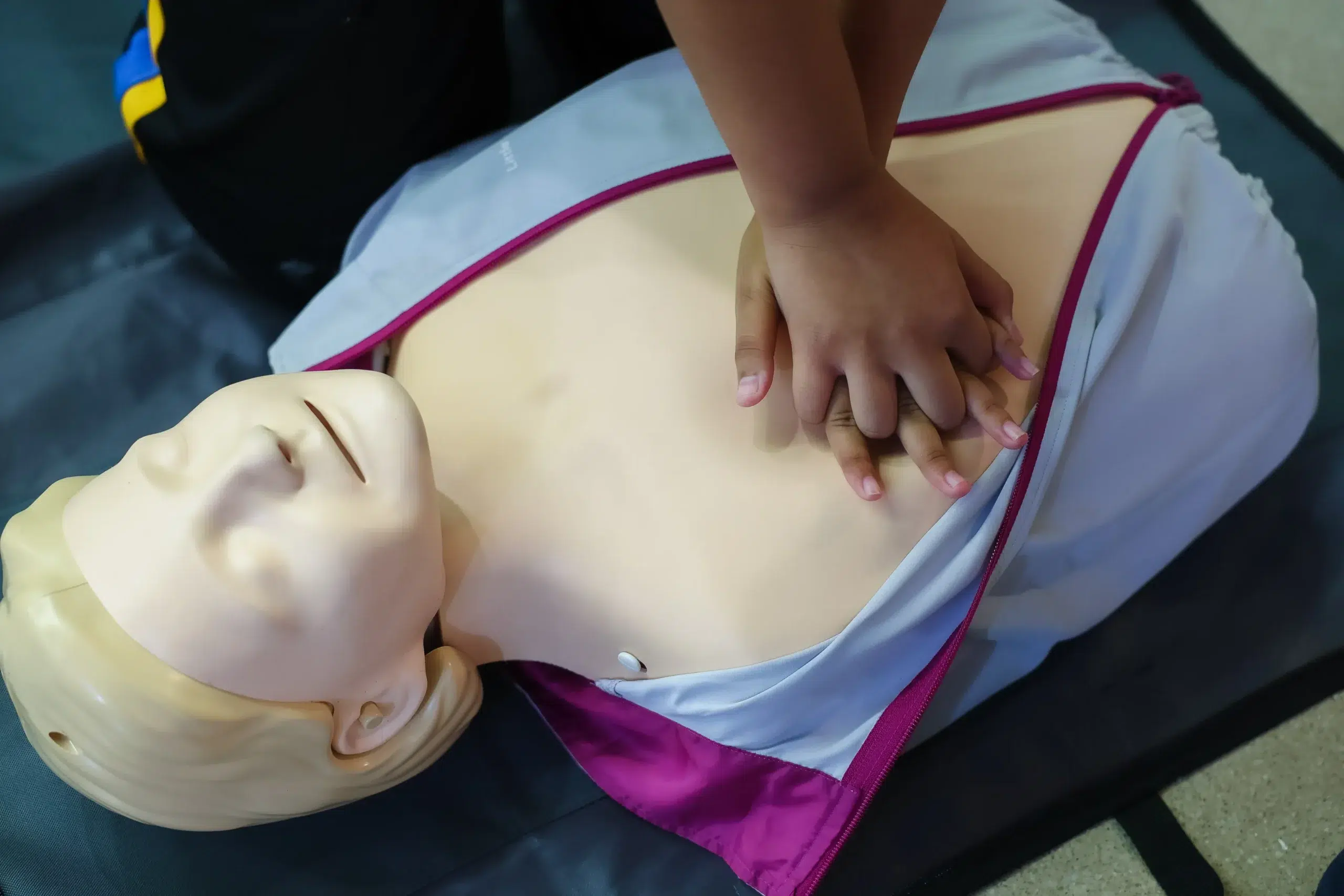In times of crisis, knowing CPR can be the difference between life and death. CPR training in Sacramento offers individuals the opportunity to acquire this essential life-saving skill. This guide explores the various CPR training options available in the Sacramento area, including BLS, ACLS, and first aid, and helps you choose the right course for your specific needs. We’ll also discuss the importance of finding an accredited training provider, like Roseville CPR Classes, which is affiliated with Safety Training Seminars, an AHA Training Center. Join us as we break down the essentials of CPR training and empower you to become a confident first responder.
Key Takeaways
- CPR training provides essential life-saving skills. Learn the steps of CPR, how to use an AED, and gain the confidence to act in medical emergencies. Find a course that suits your specific needs and learning style.
- Select a CPR course that meets your needs. Consider accreditation, instructor qualifications, and class format when making your decision. Look for AHA-certified courses with experienced instructors and hands-on practice.
- CPR certification is a valuable asset. It’s an investment in your preparedness and ability to assist others in times of need. Explore available resources, consider group discounts, and stay current with your certification.
What is CPR Training?
CPR, or cardiopulmonary resuscitation, is a lifesaving technique used when someone’s breathing or heartbeat has stopped. This can happen during a heart attack, near drowning, or other medical emergencies. CPR involves chest compressions and rescue breaths that circulate blood to the brain and vital organs until professional help arrives. The American Heart Association stresses CPR as an essential skill in these emergencies.
CPR training gives you the skills and confidence to perform CPR correctly. You’ll learn the steps of CPR, how to use an automated external defibrillator (AED), and what to do if someone is choking. These courses are designed for everyone, not just medical professionals. For example, NorCal Emergency Medical Training offers courses for people with various levels of medical experience. Hands-on practice with manikins and AEDs is a key part of training, preparing you to respond confidently in a real emergency. Capital CPR offers this type of hands-on training in their Sacramento CPR classes.
CPR Course Types
Knowing which CPR course is right for you depends on your specific needs. Here’s a breakdown of common CPR certifications:
Basic Life Support (BLS)
BLS certification covers fundamental life-saving skills, including CPR, recognizing life-threatening emergencies, using an AED, and basic airway management. This course is suitable for healthcare providers and anyone interested in learning essential life-saving skills. Roseville CPR Classes offers a BLS course through its affiliation with Safety Training Seminars, an AHA Training Center. This ensures you receive a high-quality, recognized certification. They also offer a low price guarantee, so you can be confident you’re getting the best value for your training.
Advanced Cardiac Life Support (ACLS)
ACLS certification builds upon the skills learned in BLS, focusing on the advanced treatment of cardiac arrest and other cardiovascular emergencies. This course is designed for healthcare professionals, including physicians, nurses, paramedics, and other professionals who manage cardiopulmonary emergencies. Roseville CPR Classes also provides ACLS training through its partnership with Safety Training Seminars.
Pediatric Advanced Life Support (PALS)
PALS certification focuses on the specialized skills needed to respond to life-threatening emergencies in infants and children. It covers advanced life support techniques specifically tailored to pediatric patients. While Roseville CPR Classes doesn’t directly list PALS courses on its site, contacting them directly is a good idea. Their affiliation with a larger training center may offer this specialized training.
First Aid and AED Training
First Aid training equips you with the skills to manage common injuries and illnesses, including cuts, burns, sprains, and allergic reactions. AED training teaches you how to use an automated external defibrillator, a device that can help save the life of someone experiencing sudden cardiac arrest. Often, these courses are combined, providing comprehensive training in responding to various emergencies. Check with Roseville CPR Classes for their CPR and First Aid course offerings, including information on group discounts. This can be a cost-effective way to gain these valuable skills.
Top Sacramento CPR Training Providers
Finding the right CPR training can feel overwhelming with so many options. To help you, we’ve compiled a list of top providers in the Sacramento area, highlighting what makes each one unique.
Roseville CPR Classes
Roseville CPR Classes focuses on high-quality, American Heart Association (AHA)-compliant training in Placer County. They offer a range of courses, including BLS, ACLS, and First Aid, ensuring you’re well-prepared for any emergency. Their affiliation with Safety Training Seminars, an AHA Training Center, reinforces their commitment to excellent instruction and customer service. Serving Roseville, Rocklin, and the greater Sacramento area, they offer a convenient option for local residents. Check out their website for group discounts and a low-price guarantee.
American Red Cross
The American Red Cross is a well-known provider of CPR/AED training. With options for in-person, online, or blended learning, they offer flexibility to fit your schedule. Their in-person CPR classes include hands-on practice and result in a two-year certification that meets OSHA workplace standards. This makes them a solid choice for individuals and businesses alike. Find a CPR class near you.
CPR Certification Sacramento
CPR Certification Sacramento provides AHA-certified CPR and First Aid training. With a history of training over 100,000 students nationwide, they bring a wealth of experience to their courses. They offer both in-person classes and on-site training for groups, catering to diverse learning needs and preferences. Learn more about their CPR and First Aid classes.
Sacramento Fire Department
The Sacramento Fire Department offers CPR training as part of their community education and emergency preparedness initiatives. These programs focus on equipping residents with the skills to respond effectively in emergencies, contributing to a safer community. Check the Sacramento Fire Department website for upcoming course schedules and registration information.
NorCal Emergency Medical Training
NorCal Emergency Medical Training is an AHA Training Center serving the Sacramento area. They offer a comprehensive range of courses, including ACLS, PALS, and BLS for healthcare professionals, as well as HeartSaver CPR and First Aid classes for the general public. This makes them a versatile resource for anyone seeking CPR certification. Contact them to learn more about their CPR training options.
What Happens in a CPR Training Course?
Knowing what to expect can help you feel prepared and confident going into your CPR class. Here’s a breakdown of what a typical CPR training course entails:
Course Content and Formats
CPR training courses in Sacramento offer several formats. You can choose in-person training, online learning, or a blended learning experience (a combination of online and in-person sessions). This flexibility makes it easier to fit training into your schedule and preferred learning style. In-person classes are especially helpful because they offer hands-on practice, which is key to mastering CPR techniques. For example, at Roseville CPR Classes, we offer the American Heart Association BLS course in a convenient in-person format.
Hands-on Practice
Hands-on practice is a crucial part of CPR training. In-person classes give you the chance to practice the skills you learn, building confidence and competence in administering CPR and using an Automated External Defibrillator (AED). This practical training prepares you to respond effectively in real emergencies. While online courses offer valuable information, they don’t provide the same hands-on experience you get with in-person training.
Certification Process
Once you successfully complete your CPR training, you’ll receive a certification, typically valid for two years. This certification meets workplace safety standards, including OSHA requirements, and is widely recognized. Roseville CPR Classes offers same-day certification cards so you can leave the course with your certification in hand. We also offer a low price guarantee on all our courses.
CPR Training: Cost and Value
When considering CPR training, cost is naturally a factor. But it’s equally important to weigh the value you receive. Understanding average prices, potential discounts, and the long-term benefits can help you make an informed decision.
Average Pricing
CPR course costs in the Sacramento area typically range from $60 to $80 for basic CPR/AED certification. Adding First Aid training often increases the price, with combined CPR/AED/First Aid courses generally falling between $80 and $100. These courses usually last from two to four hours, depending on the content. Remember, these are just averages, and prices can differ. Always check with specific providers like Roseville CPR Classes for their most up-to-date pricing. You can also compare with other local providers such as CPR Certification Sacramento to get a sense of the going rate.
Group Discounts and Special Offers
Many CPR training providers offer group discounts, which can significantly lower the per-person cost. This can be a cost-effective option for workplaces, community organizations, or groups of friends. For example, Roseville CPR Classes offers discounts for group bookings. Also, keep an eye out for special promotions or package deals that combine courses or include additional resources.
Return on Investment for Different Professions
The value of CPR training extends far beyond the initial cost. For many professions, CPR certification is a job requirement or significantly enhances your qualifications. Healthcare professionals, educators, childcare providers, and those in fitness or public safety roles often need CPR certification. Even if not required, having CPR training demonstrates a commitment to safety and preparedness, a valuable asset in any field. Beyond professional benefits, the ability to provide CPR in an emergency is a priceless skill. Knowing you have the power to help someone offers a sense of confidence that goes beyond any monetary value. Consider CPR training an investment in yourself, your career, and your community.
How Long Does CPR Certification Last?
Knowing how long your CPR certification lasts is key to staying prepared for emergencies. This section covers certification length, renewal requirements, and why staying current with your training matters.
Course Length
CPR courses vary in length depending on the level of certification. A basic CPR/AED course usually takes about two to four hours. More advanced courses, such as BLS for healthcare providers, might require more time. Check with your chosen training provider, like Roseville CPR Classes, for specific course durations.
Certification Renewal Requirements
CPR certifications typically last for two years. This is the standard for most organizations, including the American Heart Association and the American Red Cross. To maintain your certification and stay updated on the latest guidelines, you’ll need to renew it every two years. Our convenient RQI classes offer a great way to renew your certification.
Keeping Skills Current
While having a current certification is important, regularly practicing your CPR skills is just as crucial. Even if your certification is valid, refreshing your knowledge and technique can make a real difference in an emergency. Consider taking a refresher course or practicing with someone to keep your skills sharp. Consistent practice builds confidence and improves your ability to respond effectively under pressure. Our low price guarantee makes staying current with your training affordable. Check out our group discounts for even more affordable options.
Choose the Right CPR Training Program
Finding the right CPR training program is crucial for gaining confidence and competence in life-saving skills. Here’s what to consider:
Accreditation and Recognition
Look for programs accredited by nationally recognized organizations like the American Heart Association (AHA). Roseville CPR Classes’ affiliation with Safety Training Seminars, an AHA Training Center, ensures high-quality instruction and certification. This accreditation signifies that the program adheres to the latest scientific guidelines and best practices. AHA-accredited training centers, like NorCal Emergency Medical Training, listed with the Roseville Area Chamber, offer a range of courses, giving you confidence in the quality of your training.
Instructor Qualifications
Experienced, certified instructors are key to a good learning experience. Instructors should not only possess up-to-date certifications but also demonstrate strong communication and teaching skills. Check if the program highlights instructor qualifications, like the BLS blended learning courses offered by Sacramento CPR Classes. Knowing your instructor’s background can give you peace of mind.
Class Size and Format
Consider class size and format when choosing a program. Smaller classes often provide more personalized attention and opportunities for hands-on practice. Sacramento CPR Classes emphasizes vital emergency skills like CPR, BLS, ACLS, and PALS, often in settings that allow for individual feedback. Think about your learning style and whether you thrive in a smaller group or a larger classroom environment. Roseville CPR Classes offers group discounts which can make smaller class sizes more affordable.
Online vs. In-Person Options
Many programs now offer online or blended learning options. Roseville CPR Classes offers the flexibility of completing the online portion through the American Heart Association and then attending an in-person skills session. This hybrid approach can be convenient for busy schedules while still providing essential hands-on training with equipment like Voice Assisted Manikins (VAM). Consider which format best suits your learning style and availability. For those seeking a convenient and affordable option, Roseville CPR Classes also has a low price guarantee.
Common CPR Training Questions
It’s normal to have questions about CPR training. Here are a few common questions and answers to help you feel prepared.
Legitimacy of Online Certifications
One common question is whether online CPR certification is valid. It can be, but it’s essential to ensure your certification comes from a recognized organization like the American Heart Association (AHA) or the American Red Cross (ARC). Many employers require certification from these specific organizations, so double-check what’s needed in your workplace. If you’re looking for in-person training and certification through the AHA, check out our BLS and ACLS courses.
Who Needs CPR Certification?
CPR certification is valuable for a wide range of people. Healthcare professionals like doctors, nurses, and paramedics certainly benefit, but it also extends to other professions where knowing CPR can make a difference. Teachers, childcare providers, lifeguards, and even parents can gain confidence and skills to respond to emergencies. Essentially, anyone who might need to help someone in a medical crisis should consider CPR training. For those working in education, childcare, or similar fields, having this training provides an extra layer of safety and preparedness.
Overcoming Fear of Performing CPR
Many people worry about remembering the steps of CPR in a real emergency. It’s natural to feel some anxiety, even after training. The key is to choose a course that offers plenty of hands-on practice. This builds your muscle memory and confidence. Look for classes that emphasize practical application and provide opportunities to ask questions. Remember, even if you don’t perform CPR perfectly, any attempt is better than none. Periodically review the CPR steps to keep your skills fresh.
Flexibility in Scheduling
Finding the time for CPR training can be tricky. Fortunately, many providers offer classes at various times and locations. Look for weekend options, evening courses, or even blended learning formats that combine online modules with in-person skills sessions. Check with providers in your area, like Roseville CPR Classes, to find a schedule that fits your needs. We offer group discounts to make training more accessible.
Prepare for Your CPR Training
Getting ready for your CPR training doesn’t require a ton of prep, but a little planning can make your experience smoother. Here’s what you should know:
What to Bring
CPR training is very hands-on. You’ll work directly with CPR manikins, AED trainers, and other equipment to practice your skills. Wear comfortable clothing that allows for a full range of motion—you’ll be kneeling and practicing compressions. Your CPR class will provide all the necessary training equipment, so you don’t need to bring anything other than yourself and a willingness to learn.
Pre-course Study Materials
Many CPR courses blend online learning with in-person skills sessions. This means you might have some pre-course materials to review before your class. Check with your chosen provider to see if they offer online modules or recommend any pre-reading. Familiarizing yourself with the basics beforehand can help you get the most out of your in-person training. Roseville CPR Classes offers a variety of courses, including BLS, ACLS, and PALS, so you can find the right fit for your needs.
Post-Training Resources and Support
Your learning doesn’t end when you walk out of the classroom. Reputable CPR training providers often offer resources to help you maintain your skills. This might include access to online refresher materials, skill videos, or information about continuing education opportunities. Knowing you have access to ongoing support can increase your confidence and preparedness for real-life situations. Roseville CPR Classes prioritizes your learning experience and offers a low price guarantee, ensuring you receive high-quality training at a competitive price. They also offer RQI classes for healthcare professionals looking to maintain their resuscitation skills.
CPR Training and Community Safety
Importance of Widespread CPR Knowledge
Learning CPR is a powerful skill. It empowers you to potentially save a life and strengthens your community’s safety net. With hundreds of thousands of cardiac arrests happening each year in the United States, knowing CPR can dramatically improve survival rates. When someone trained in CPR, AED, or First Aid can step in while waiting for EMS, patient outcomes are significantly better. This underscores how vital widespread CPR training is. It transforms bystanders into potential lifesavers, bridging the critical gap before professional help arrives.
Local Initiatives and Community Programs
Many organizations are dedicated to bringing life-saving skills to our communities. The Red Cross actively promotes community safety through programs like their Schools Program, equipping students and staff with essential life-saving knowledge. Groups like Capital CPR focus on providing Sacramento residents with the confidence to respond effectively in emergencies. The American Heart Association also offers numerous resources to encourage CPR education and build a “Nation of Lifesavers.” These local initiatives create a network of support and training, making our communities safer and more resilient. Consider exploring these resources and joining the growing network of people empowered to make a difference.
Related Articles
- Workplace CPR & First-Aid Training Benefits
- CPR Training in Roseville: Your Complete Guide – Roseville CPR Classes
- CPR Myths Busted: What Really Works
- BLS Classes in Sacramento: Your Complete Guide – Roseville CPR Classes
- Why CPR is Important in Healthcare – Roseville CPR Classes
Frequently Asked Questions
What’s the difference between BLS and ACLS?
BLS (Basic Life Support) teaches essential life-saving skills, including CPR, AED use, and basic airway management. It’s suitable for anyone, from healthcare providers to concerned citizens. ACLS (Advanced Cardiac Life Support) builds upon BLS, focusing on advanced treatment for cardiac arrest and other cardiovascular emergencies. It’s designed for healthcare professionals who manage these types of emergencies. Think of BLS as the foundation and ACLS as the specialized next step.
How do I choose the right CPR class?
Consider your current role and future goals. If you’re a healthcare professional, BLS is often a minimum requirement, and ACLS might be necessary depending on your specialization. If you’re not in healthcare but want to be prepared for emergencies, a basic CPR/AED/First Aid course is a great option. Also, think about the class format. Do you prefer in-person, online, or a blended approach? Check out what different providers offer and choose what fits your learning style and schedule.
I’m nervous about performing CPR in a real emergency. What if I forget the steps?
It’s completely normal to feel a little anxious about using CPR in a high-pressure situation. That’s why hands-on practice during training is so important. It helps build muscle memory and confidence. Choose a course that emphasizes practical application and gives you plenty of opportunities to practice. And remember, even if you don’t remember every single step perfectly, any attempt at CPR is better than no attempt at all.
How much does CPR training cost, and how long is the certification valid?
CPR training costs vary, but basic CPR/AED certification typically ranges from $60 to $80. Adding First Aid training usually increases the cost. Many providers offer group discounts, so check for those. Most CPR certifications are valid for two years. To stay current, you’ll need to renew your certification before it expires.
What if I have other questions about CPR training?
Reach out to your local CPR training provider. They can answer specific questions about course offerings, schedules, certification requirements, and anything else you might be wondering about. Don’t hesitate to ask – they’re there to help you gain these life-saving skills.


